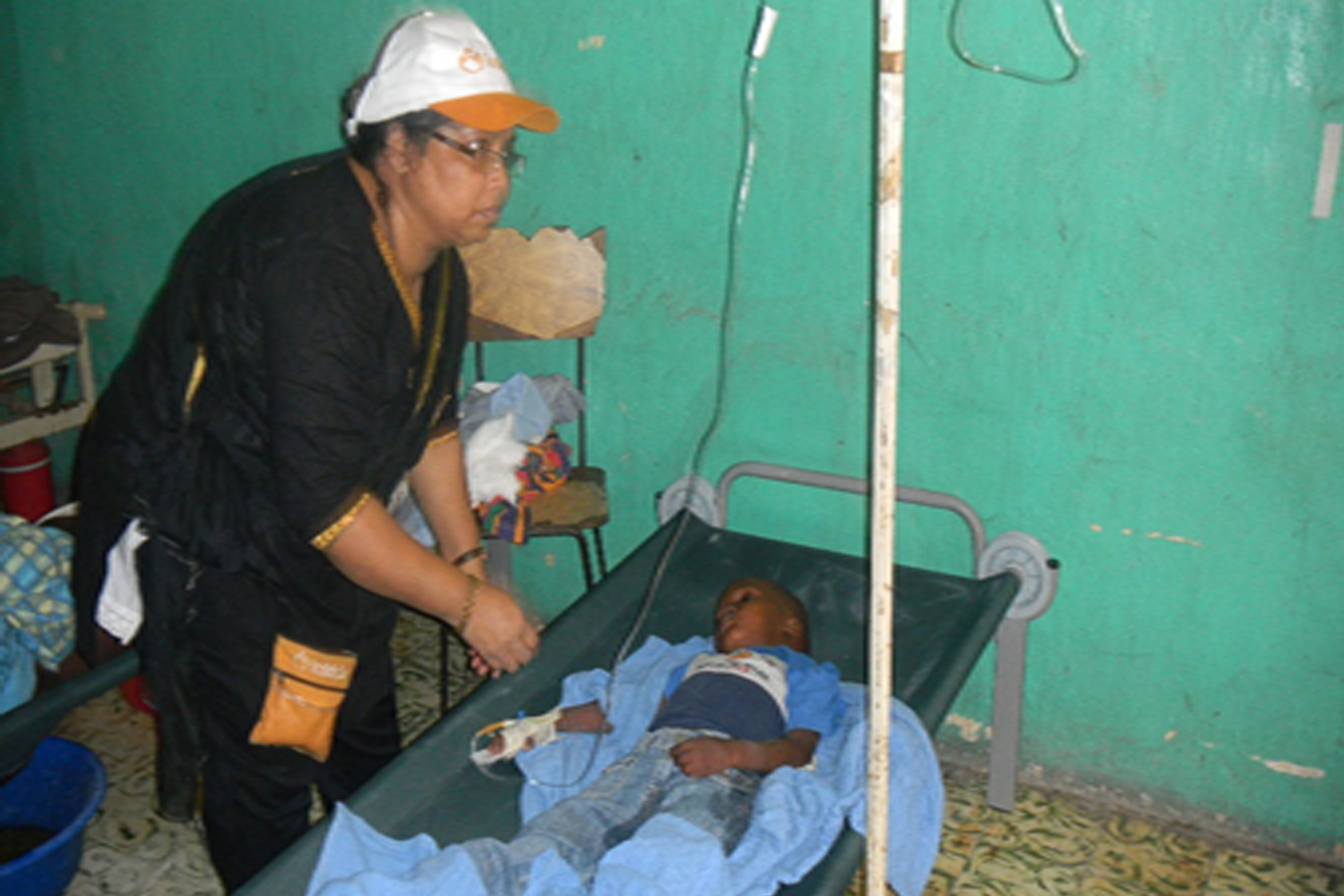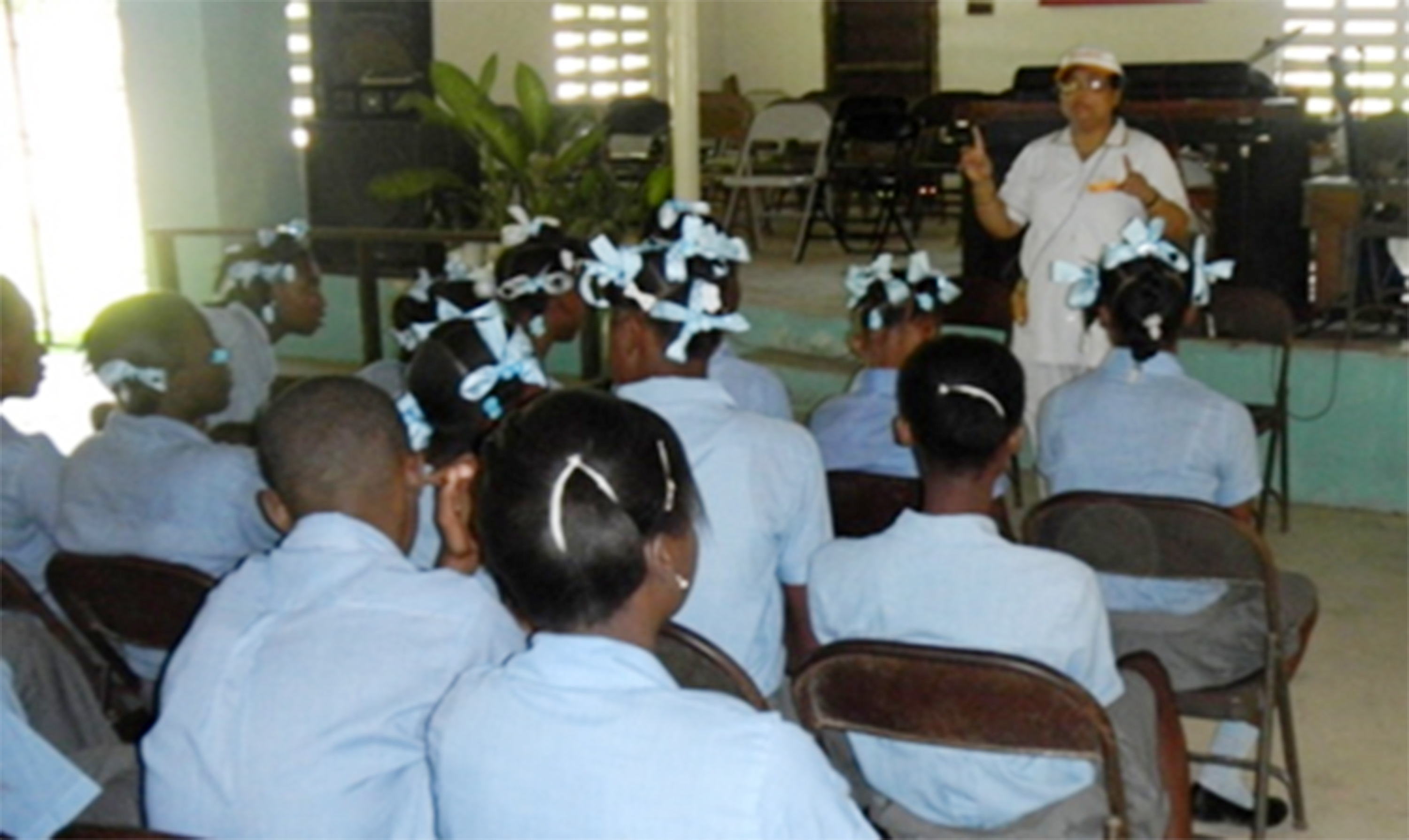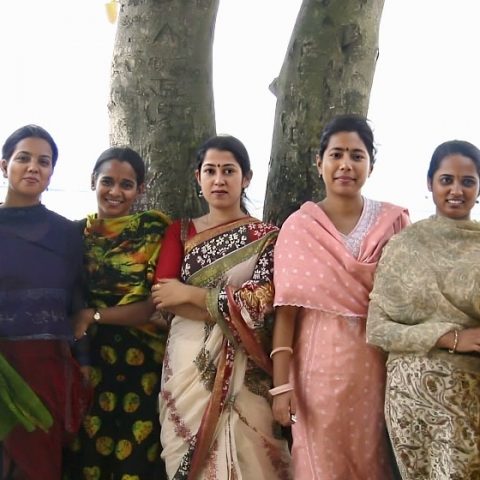
By Momtaz Begum, Nursing Officer at icddr,b Hospital
In November 2010, my life took an unexpected turn when I was selected, alongside my colleague, Nursing Officer Ms Cathrine Costa, to join an emergency response team in Haiti. The country was in the grip of a devastating cholera outbreak, and we were part of an eight-member medical team sent to help on the front lines. Four doctors Dr Ramendra Nath Mazumder, Dr Ehsanul Huq, Dr Chandra Shakhar Das, Dr Sharifuzzaman and two microbiologists Dr Md. Sirajul Islam and Dr Zahid Hayat Mahmud were with us. Our journey from Dhaka to Haiti was long and fraught with challenges—little did we know that the obstacles we faced were just a preview of what was waiting for us.
We hit our first major snag after flying through Dubai, Casablanca, and arriving at Orly Airport in France. We reached the airport at 8:00 pm, with a 12-hour layover before our flight to Haiti. However, the airport shut down at midnight, and no one was allowed to stay inside, which we didn’t know before. We were stuck in a country we couldn’t technically enter, and the airport authorities were equally perplexed. Despite our team leader’s attempts to negotiate, the issue remained unresolved and finally, the army stepped in.
It was unnerving. The army officers carefully searched us and our belongings and, eventually, escorted us to a nearby hotel. The situation, however, remained tense. We were told to leave our doors open and forbidden from speaking to each other. Two armed officers sat outside each of our doors, watching over us as we were trying to rest, though hunger gnawed at us, no food was provided. The next morning, under their strict supervision, we returned to the airport, were finally given breakfast, and allowed to board our flight to Haiti. Only after we were seated on the plane did they return our passports.
Upon arriving in Port-au-Prince, we were immediately plunged into the heart of the crisis. Cholera was ravaging the population, and the hospitals were overcrowded with patients and many of them severely dehydrated. One doctor from Médecins Sans Frontières (MSF) told us he hadn’t slept in the last 72 hours. The fear among local doctors and nurses was palpable; they were covered head to toe in disposable gear—head caps, gowns, masks, and foot covers—doing everything they could to protect themselves while trying to care for the sick.
It was during one of these harrowing hospital visits that I experienced a moment that would forever define this mission for me. A woman, on the brink of death from severe dehydration, lay abandoned in her bed. Beside her,was another patient who had already passed away. The doctors and nurses had tried to insert an IV line to save her, but after several failed attempts, they gave up. She was left there, waiting for her final breath.
Without hesitation, Cathrine and I rushed to her side. Fortunately, we had carried essential medical supplies with us—IV cannulas, alcohol pads, adhesive tape, and 25% glucose. Within minutes, we had inserted two IV lines and began administering fluids. Miraculously, the woman opened her eyes. She smiled weakly and said, “You people are angels.” I will never forget those words. It was a moment of triumph amidst the chaos, a flicker of hope in the darkness.
Our work didn’t go unnoticed. The hospital staff, exhausted and overwhelmed, expressed their gratitude. Our project leader was so moved that he arranged a special dinner on a nearby island to thank us. We continued our work, moving from city to city, hospital to hospital, and providing hands-on training to local medical staff. We taught them how to open IV lines even in collapsed veins and quickly assess the signs of dehydration. It was vital to screen patients for “No sign,” “Some sign,” or “Severe sign” of dehydration to ensure timely treatment.
One of the most moving moments came just before we left Haiti. We were invited to a local church where a father, in front of a congregation of local people, offered a heartfelt prayer for our safety, peace, and happiness. The warmth and gratitude we received from the people of Haiti was overwhelming and humbling.

Throughout our time there, we also conducted training sessions, not only for medical professionals but for everyone involved in the community. Doctors, nurses, caregivers, security guards, army officers, local people, and even school children—everyone was eager to learn how they could help. I often found myself repeating a simple yet empowering message: “Cholera is easy to diagnose, easy to treat, and nothing to be worried about.” My hope was that by spreading this knowledge, we could break the fear that surrounded the disease and encourage people to seek treatment without delay.
Looking back, my time in Haiti was filled with both heartbreak and hope. It was a journey that tested my resilience, but it also reminded me of the incredible impact we can have, even in the darkest of times. We went to Haiti as nurses, but to the people we helped, we became something more—something that will always stay with me.

